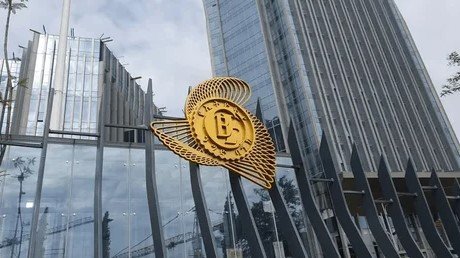Ethiopia’s banking sector is reeling from major setbacks, with Selam Bank’s quiet collapse and Sinque Bank’s audit exposing hidden loans and fraud. These issues, unfolding in 2025, raise questions about oversight under Prime Minister Abiy Ahmed’s government and highlight risks to the nation’s economy.
Selam Bank’s Ambitious Start and Sudden End
Selam Bank launched in 2021 with big promises to fix Ethiopia’s housing shortage. Co-founded by Zemedeneh Negatu, it aimed to finance 100,000 homes over five years, creating billions in wealth.
But the bank never issued a single mortgage or built any homes. It stayed in planning mode for two years before merging with another bank in 2023. Experts point to flawed models, like using the same property as collateral and buyer asset, which caused legal fights.
No public audit explained the failure. This left investors and the public in the dark about where the money went.
The merger happened amid internal troubles, but officials stayed silent. This lack of transparency fuels distrust in new banks.
Sinque Bank Audit Uncovers Hidden Problems
A recent audit by the National Bank of Ethiopia revealed serious issues at Sinque Bank. It showed the bank hid bad loans and boosted its capital illegally.

The audit found over 1 billion birr in non-performing loans rolled over to look healthy. This “evergreening” tricked regulators and kept the bank’s reported loan problems below the danger line.
Sinque also failed to collect nearly half its promised capital. Loans to companies like coffee plantations lacked enough backup assets.
These findings match the central bank’s 2024 report on wider sector risks. They show how weak rules let problems grow unchecked.
The video from Ethio Forum highlighting this has gained over 280,000 views quickly. It sparks public anger and calls for probes.
Zemedeneh Negatu’s Role in the Spotlight
Zemedeneh Negatu, a key promoter of Selam Bank, often shares bold economic visions. He claimed the bank would add 5% to Ethiopia’s GDP through housing.
Yet his past projects, like a $4 billion refinery announced in 2017, never took off. No investors or deals materialized despite the hype.
Now, he promotes treasury bills with returns that barely beat inflation. Critics say his track record shows more talk than results.
This pattern raises concerns about hype in Ethiopia’s finance world. It echoes global cases where big promises led to crashes.
Negatu’s claims of a $17 billion portfolio add to the scrutiny. Many question if these numbers hold up under review.
Broader Risks to Ethiopia’s Financial Sector
Ethiopia’s banks face growing pains as the country opens to foreign investment. New laws in 2025 allow outside players for the first time in decades.
But cases like Selam and Sinque show systemic flaws. Inflation at 14.2% in August 2025 erodes trust, and unreported failures could scare investors.
Here are key risks highlighted by recent events:
- Weak oversight lets banks hide bad loans.
- Legal gaps in areas like mortgages cause disputes.
- High inflation makes safe investments hard to find.
- Corruption claims tie to bigger economic reforms.
A stability report from late 2024 warns of liquidity crises weeding out weak banks. Without fixes, more failures could hit the economy hard.
| Issue | Selam Bank | Sinque Bank | Sector Impact |
|---|---|---|---|
| Main Problem | No operations, merger without audit | Hidden bad loans, low capital | Loss of public trust |
| Financial Scale | Promised 200 billion birr in loans | 1.2 billion birr in evergreened loans | Potential for wider bank runs |
| Timeline | 2021 launch, 2023 end | 2024 audit reveal | Ongoing in 2025 reforms |
| Outcome | No homes built | Possible sanctions | Calls for tighter rules |
Paths Forward for Accountability
Prime Minister Abiy Ahmed’s team claims a clean government, but silence on these banks challenges that. Public demands grow for probes and clear reports.
Experts suggest stronger audits and rules for new banks. Learning from global crises, like the 2008 housing bust, could help.
Transparency would rebuild faith. It might prevent future flops and attract real investment.
What do you think about these banking issues? Share your views in the comments and spread this article to raise awareness.








